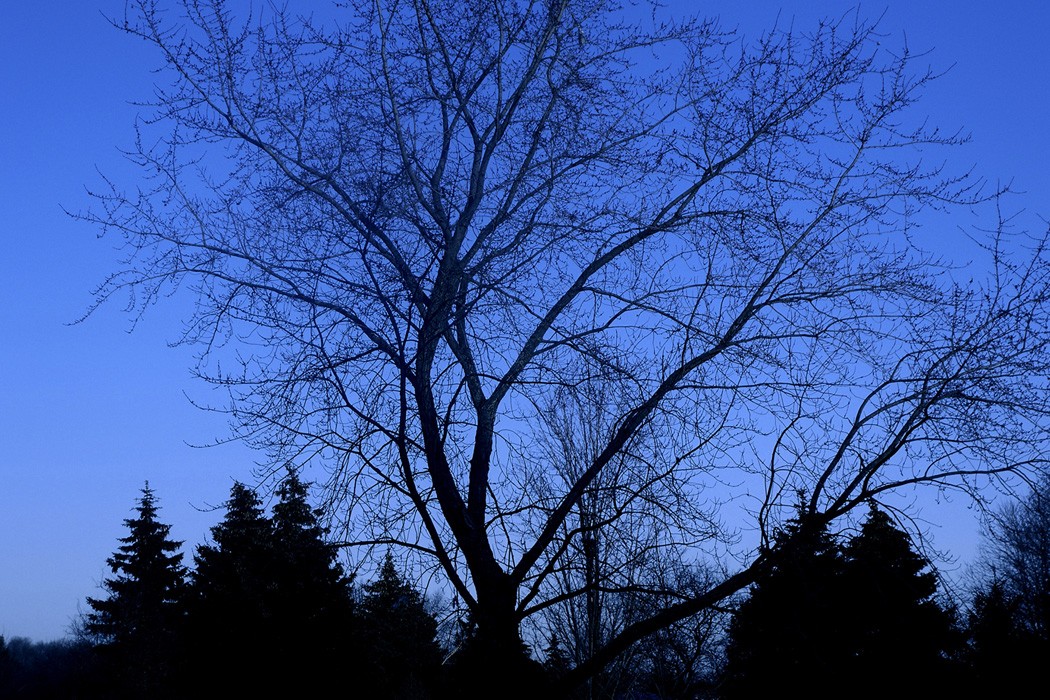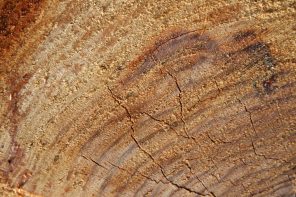This essay was previously published in the Summer 2001 Abbey Letter, no. 206 (Saint Gregory’s Abbey, Three Rivers, Michigan).
Shortly after I joined the monastery almost nine years ago, the novice master read from Aspects of the Monastic Calling by Matthew Kelty in a monastic formation class. This particular passage struck me: “One reason monks rise early to pray is the quiet of the night. Darkness is a kind of visual quiet and monks love it. The hours before dawn are sacred.” Although it took a while to get used to the early mornings here (and they can still be rough), I have come to appreciate the beauty and holiness of those pre-dawn hours and I feel blessed to have been given the opportunity to experience them.
The usual day at St. Gregory’s begins at 4:00 a.m. as we meet in the church for Matins. This first prayer of the day lasts about half an hour, and, depending on the season, there may be as many as four hours or as few as one and a half between the end of Matins and sunrise. A lot takes place in this interval before daybreak: showering, eating breakfast, personal scripture reading, and prayer. I do all of these things and am quite glad that I do, but my favorite thing to do before dawn is to stand outside listening to the sounds coming from the woods and looking at the sky.
The sounds outside our monastery make it plain that the forest does not sleep at night. If anything, it gets louder. The occasional screams of animals attest to the fact that the woods are full of predators and prey. Our cats have fallen into both categories; sometimes we have seen them hauling their prey in from the woods so that they might bring it inside to eat in the relative comfort of our basement, and at other times dragging their own scratched and bloodied selves back home after a night of misfortune. The trees also make a lot of noise—rustling in the wind, rubbing against each other, and sometimes falling over with a loud crash. All of these noises are accompanied by the constant drone of insects, who, although they don’t buzz around as they do in the daylight, certainly are loud.
The sky does not sleep at night, either. This being western Michigan, the sky is rarely free of clouds, and the patterns that they make are highlighted in unusual ways by the moonlight as well as by the lights from Three Rivers to the east. Sometimes the clouds seem to be boiling, adding a restless quality to the sky. On the occasional cloudless night the stars and planets are beautiful as they shine down on us. At the time of this writing the southern sky is interesting, with Mars growing brighter each day. Directly to its right is Antares in the tail of Scorpio, and further west and north is Arcturus. Having all three of these bright, red objects so close together is a treat. Directly overhead is the triangle of Deneb, Vega, and Altaire. I watch the yearly movement of the stars, as well as the quicker movement of the planets. Of course the constant air traffic adds its lights to the sky, as well as the rare sighting of a satellite moving at a rapid pace. Perhaps soon the International Space Station will be visible.
As beautiful as the woods and the sky are at this time of morning, most of my thoughts are about other people as I spend time outside before dawn. We receive many prayer requests from people experiencing difficulty and grief, and I hold them in my heart as I look at the stars, knowing that many of them are also awake—unable to sleep because of their worries. I hope it helps them to know that we are awake with them as they go through difficult times. I also think of my family and friends whom I left in order to enter the monastery, as well as friends I have made since moving here. Some of them are a thousand miles away, some are in towns close by, but all of them are always in my heart.
The sky brings all these people to mind because of something I read in a book on cosmology from the monastery library. I have forgotten the name of the book, but not what the author said about the likelihood that it has taken at least two generations of stars to produce enough heavy elements necessary for human life. After the Big Bang most of the matter in the universe was hydrogen, which coalesced, forming stars. The hydrogen fused into heavier elements in the cores of these stars, driving their nuclear furnaces. When these early stars died they spewed those heavier elements into space, triggering a second generation of stars as the heavier elements in turn pulled together and started burning. Once again, nuclear fusion was the driving force in the cores of the stars, as even heavier elements were formed. When this second generation of stars died, the process was repeated, but this time, there were enough heavy elements to bring about the formation of planets, as well as people.
Some people don’t like to think of themselves as byproducts of stellar evolution, because it makes them feel an unimportant part of cold, mechanistic world. I feel the opposite. It seems to me that if God took that much time and effort to create the raw materials necessary to form us and our beautiful planet, it is an indication of God’s vast love and regard for us. When we read the story of God’s forming us out of the dust of the earth, we can remember that we are indeed stardust. When we participate in the yearly tradition of having ashes put on our foreheads on Ash Wednesday and we hear the words, “Remember that you are dust, and to dust you shall return,” we can always remind ourselves that one meaning of that phrase is: “Remember that you are from the stars, and to the stars you shall return.” Thinking of it in those terms puts a new spin on the idea of repentance. Our potential is stellar, yet we tend to act so petty. Even further, we so often treat others like dirt, when we should be treating them as the precious stardust that God took so long to form.
But God does not stop there. After taking such pains to form us from the dust of the earth, God breathes life into us. We are filled and made alive by the breath of God in us. Every inhalation can be a reminder of how close God is, lovingly breathing life into us—as it were, kissing us into existence. In return, every exhalation can be an opportunity to breathe the life-giving love of God onto others. Yet once again, we must ask ourselves how often we abuse our God-given breath by using it to curse instead of to bless, to tear down instead of to strengthen, or to belittle instead of to praise.
These are all heavy thoughts for the hours before dawn, but it seems that this time is especially suited for just those kinds of ponderings. The world is waking up, coming to life with the opportunity to begin again, giving us the chance to leave behind those attitudes and actions which we need to abandon and allowing us to strengthen those good things for which we are created. As the sky brightens and turns different colors with the coming of dawn, the stars fade and the sounds from the forest change as birds begin to sing and wild turkeys start gobbling. The roads around us also grow louder as people start coming home from the late shift or leaving home to work the early shift. Dew begins to form on the grass, and the monastery bell rings, calling us back to meet together in the church again for more prayer.
The preceding night and ensuing dawn has given us much material for prayer: repentance for our shortcomings, determination to change for the better, gratitude for our friends and family, thanksgiving for the wonderful world in which we live, and concern for others who have asked for our prayers. We bring all of these things to God gladly, as we hold the world in our hearts with love. We don’t know what the coming day will bring, or if we will be given a tomorrow. The time to come to life is now, as the sun rises and we start a new day full of love and joy, thankful for the opportunity to live in God was well as in the hearts of those around us.




